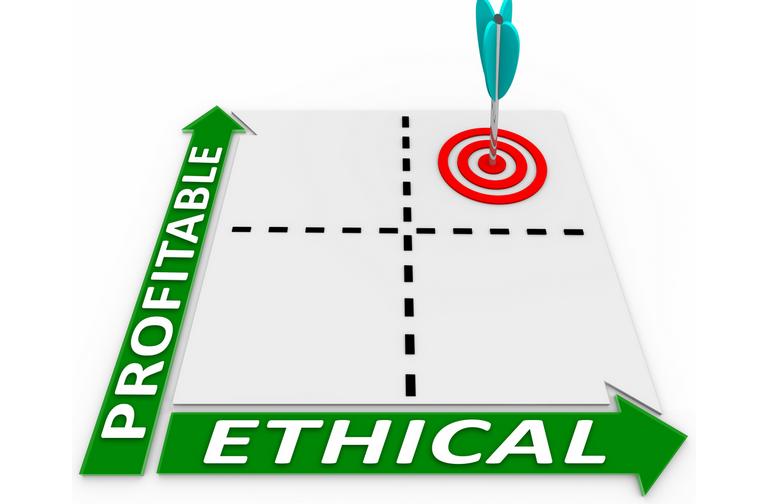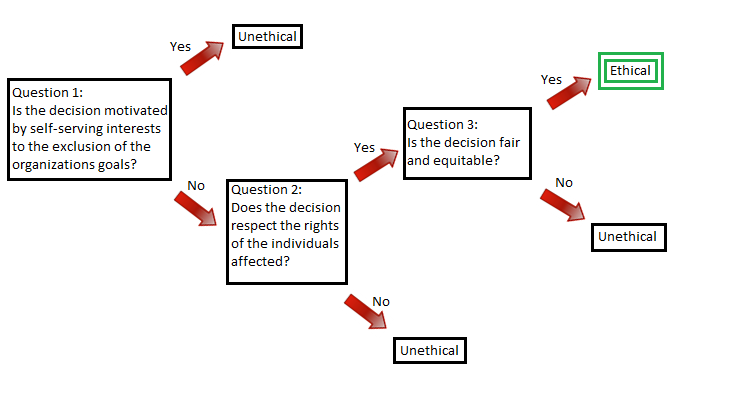When making entrepreneurial decisions, ethical considerations should always be at the forefront of our criterion. And although there are no clear-cut ways to differentiate from ethical and unethical decision making, there are 3 main questions to consider. These 3 questions are based on the 3 main criterion in ethical decision-making—utilitarianism, rights, and justice.
The point of the above questions is to answer them truthfully when faced with an ethical dilemma. Nowadays unfortunately, one might answer those questions in ways to make unethical decisions seem ethical. Powerful people, for example, can become very adept at explaining self-serving behaviors in terms of the organizations best interest. Also those who are powerful, articulate, and persuasive are the most likely to be able to get away with unethical actions successfully.
What can we conclude regarding ethics?
Managers should seek to convey high ethical standards to their employees firstly through their actions. By what managers say, do, reward, punish and overlook, they set the ethical tone for their employees.
Moreover, when hiring new employees, managers have an opportunity to weed out ethically undesirable applicants. They should identify individuals whose ethical standards might be in conflict with those of the organization or who are particularly vulnerable to negative external influences.
Make firm your company’s ethical framework. This will only enhance your company’s reputation, and with all other variables put aside, profits will definately rise.






